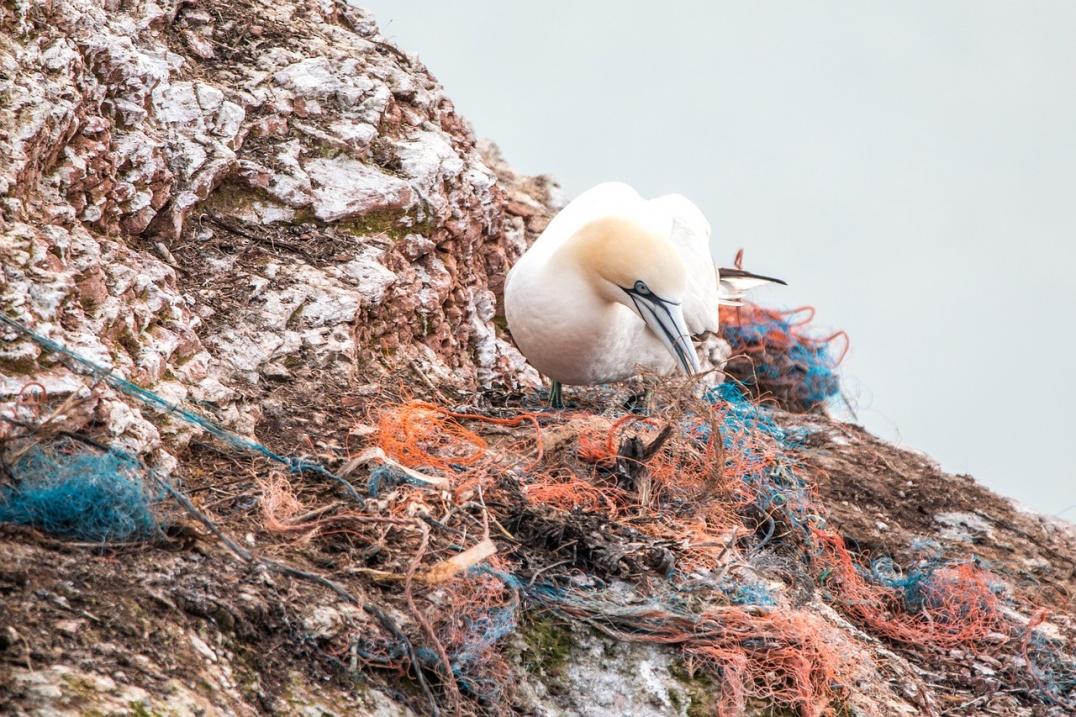Less is More: Our World is Overflowing with Plastic
Symantec Launches Employee Campaign to Go Green and Reduce Plastics

Symantec blog | Corporate Responsibility
By 2050, the oceans will contain more plastic than fish by weight.
As a global society, we are constantly on the move and we can take nearly everything with us along the way—our phone, our emails, our meetings, our food and our water. We have become accustomed to having what we need, when we need it. However, our on-the-go habits are having some pretty drastic impacts on our planet.
Nearly every time we take food to go or coffee on the run, a container is needed, and these containers take resources that our planet must sustain. Plastic is one of the fastest growing packaging segments, however, in the United States less than 14 percent is recycled. It is estimated that by 2050, the oceans will contain more plastic than fish by weight[1]. Globally, it is estimated that 84 percent of waste in the water and 68 percent of beach waste is plastic[2]. According to a February 2018 article in National Geographic “the equivalent of five grocery bags of plastic trash for every foot of coastline spills into the oceans annually.” In other words, our world is overflowing with plastic and once it’s in the environment, it’s there to stay.
Doing our part to make an impact
Across the world, cities, communities, businesses and individuals are creating policies and solutions to reverse this trend. California jurisdictions were the first in the United States to ban plastic bags, following countries such as Kenya, Rwanda, China, France, among others. In 2020, France will be the first country to ban plastic plates, cups, and utensils. China’s National Development and Reform Committee (NDRC) is discussing measures that will curb plastic usage across the country. Unilever, whose products are used by 2.5 billion people every day, has set a goal to ensure all plastic packaging is fully reusable, recyclable or compostable by 2025.
While using a plastic bottle from time to time would not hurt our planet significantly, it is the fact that all of our “little things” add up to a lot of impact. Here are a few misconceptions held by many about the impacts of plastics:
It’s recyclable so therefore it’s ok
Choosing a plastic that is recyclable is a significant first step. However, plastic itself takes resources to create and recycling takes resources to implement. For example, a recent study published in the Journal of Cleaner Production reveals that bottled water is approximately three times more carbon intensive than tap water. In addition, despite many forms of plastic being recyclable, only a small fraction of plastic waste ends up being recycled. This situation is exacerbated by China’s recent decision to ban the imports of plastic waste.
I’m only one person
According to the Guardian, “a million plastic bottles are bought around the world every minute [equivalent to ~20K per second] and the number will jump another 20 percent by 2021.” In China alone studies show that approximately 20 million online food orders per day produce more than 60 million plastic cartons.[1] Think about the collective impact if all of these “I’s” were to avoid plastic.
Add to this cups, bags, grocery packaging and many hidden sources of plastics such as tea bags, chewing gum, the lining of beverage cans, and clothing fibers[2]. We all likely use substantially more plastic than we realize.
Everywhere I turn there is plastic
Yes, this is true. However, there are simple ways to reduce our dependency on plastics. For example, the Plastic Pollution Coalition has released a variety of “Guides to Living Plastic Free” for school, towns, events and catering. If we get creative, we can take ourselves back to the time before plastic was widely used - circa the early 1950s when plastics wiggled their way into the mainstream.
Reducing plastics on our campuses
Earlier this year Symantec launched “Going Green in 2018”, a company-wide, global campaign to educate, inspire and engage employees in environmental sustainability, and encourage us all to take action to help protect our world. Our most recent Going Green in 2018 effort is the launch of our Reducing Plastics initiative—kicking off today in our Dublin office—focused on reducing the majority of single-use plastic bottles from our offices worldwide, where possible, over the next several years. We are encouraging employees to reduce their use of plastic bottles by educating them on the impacts of plastics, providing alternatives, along with Symantec reusable bottles. The Dublin Reducing Plastics initiative is designed to reduce the use of single-use plastic bottles by 93 percent in our Dublin office!
A general rule of thumb: less is more
The value of plastic packaging is expected to grow from $270 billion in 2014 to $375 billion in 2020[1]. Plastic isn’t going anywhere unless we all take intentional steps towards reducing our reliance on it.
Plastic plays an important role in our society enabling many important, and sometimes life-saving, products we depend on. However, its expansion where alternatives exist is creating a problem too large for our earth to sustain. It is the responsibility of all of us to think about how as individuals, companies and communities, we can change the way we depend on this resource.
An easy first step and general rule of thumb that we can all remember—less is more. Happy Earth Day and to using less plastic in the year ahead!
[1] http://www.plasticpollutioncoalition.org
[2] China Promises Restrictions on Plastic Waste (http://www.eco-business.com/news/china-promises-restrictions-on-plastic-waste/)
[3] China Promises Restrictions on Plastic Waste (http://www.eco-business.com/news/china-promises-restrictions-on-plastic-waste/)
[4] Moral Fibres: 11 Surprising Items that Contain Plastic (http://moralfibres.co.uk/11-surprising-items-that-contain-plastic/)
[5] https://www.plasticstoday.com/packaging/global-plastics-packaging-market-hit-375-billion-2020/2380048162497

